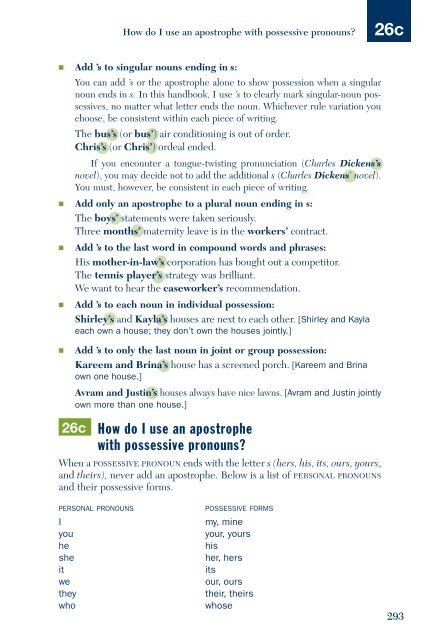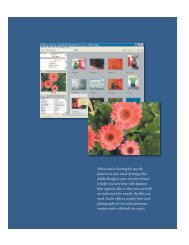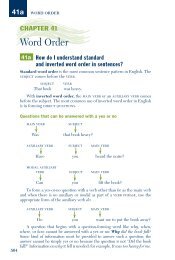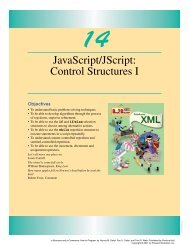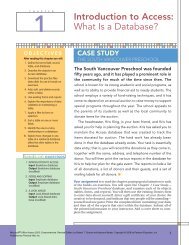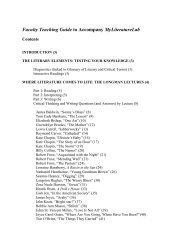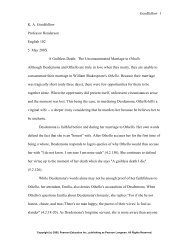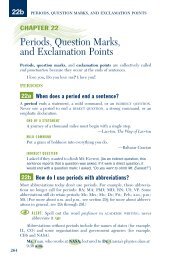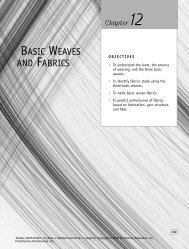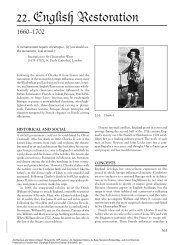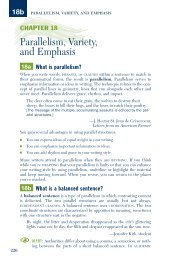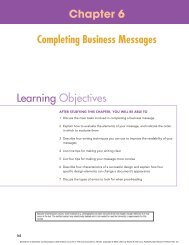Chapter 26: Apostrophes eBook - Pearson Learning Solutions
Chapter 26: Apostrophes eBook - Pearson Learning Solutions
Chapter 26: Apostrophes eBook - Pearson Learning Solutions
Create successful ePaper yourself
Turn your PDF publications into a flip-book with our unique Google optimized e-Paper software.
How do I use an apostrophe with possessive pronouns? <strong>26</strong>c<br />
■ Add ’s to singular nouns ending in s:<br />
You can add ’s or the apostrophe alone to show possession when a singular<br />
noun ends in s. In this handbook, I use ’s to clearly mark singular-noun possessives,<br />
no matter what letter ends the noun. Whichever rule variation you<br />
choose, be consistent within each piece of writing.<br />
The bus’s (or bus’) air conditioning is out of order.<br />
Chris’s (or Chris’) ordeal ended.<br />
If you encounter a tongue-twisting pronunciation (Charles Dickens’s<br />
novel), you may decide not to add the additional s (Charles Dickens’ novel).<br />
You must, however, be consistent in each piece of writing.<br />
■ Add only an apostrophe to a plural noun ending in s:<br />
The boys’ statements were taken seriously.<br />
Three months’ maternity leave is in the workers’ contract.<br />
■ Add ’s to the last word in compound words and phrases:<br />
His mother-in-law’s corporation has bought out a competitor.<br />
The tennis player’s strategy was brilliant.<br />
We want to hear the caseworker’s recommendation.<br />
■ Add ’s to each noun in individual possession:<br />
Shirley’s and Kayla’s houses are next to each other. [Shirley and Kayla<br />
each own a house; they don’t own the houses jointly.]<br />
■ Add ’s to only the last noun in joint or group possession:<br />
Kareem and Brina’s house has a screened porch. [Kareem and Brina<br />
own one house.]<br />
Avram and Justin’s houses always have nice lawns. [Avram and Justin jointly<br />
own more than one house.]<br />
<strong>26</strong>c How do I use an apostrophe<br />
with possessive pronouns?<br />
When a POSSESSIVE PRONOUN ends with the letter s (hers, his, its, ours, yours,<br />
and theirs), never add an apostrophe. Below is a list of PERSONAL PRONOUNS<br />
and their possessive forms.<br />
PERSONAL PRONOUNS POSSESSIVE FORMS<br />
I my, mine<br />
you your, yours<br />
he his<br />
she her, hers<br />
it its<br />
we our, ours<br />
they their, theirs<br />
who whose<br />
293


